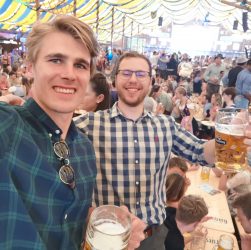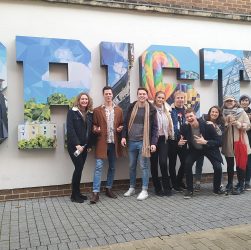DIME (Digital Industrial Management and Engineering) Masters at Hochschule Reutlingen If you are reading this post, you may have already …


DIME (Digital Industrial Management and Engineering) Masters at Hochschule Reutlingen If you are reading this post, you may have already …

Pre-departure: The exchange semester included in BCom International Business is one of the most attractive features of the degree. So …

Before departure – South Africa Planning for a semester exchange abroad is vital and almost just as daunting as actually …